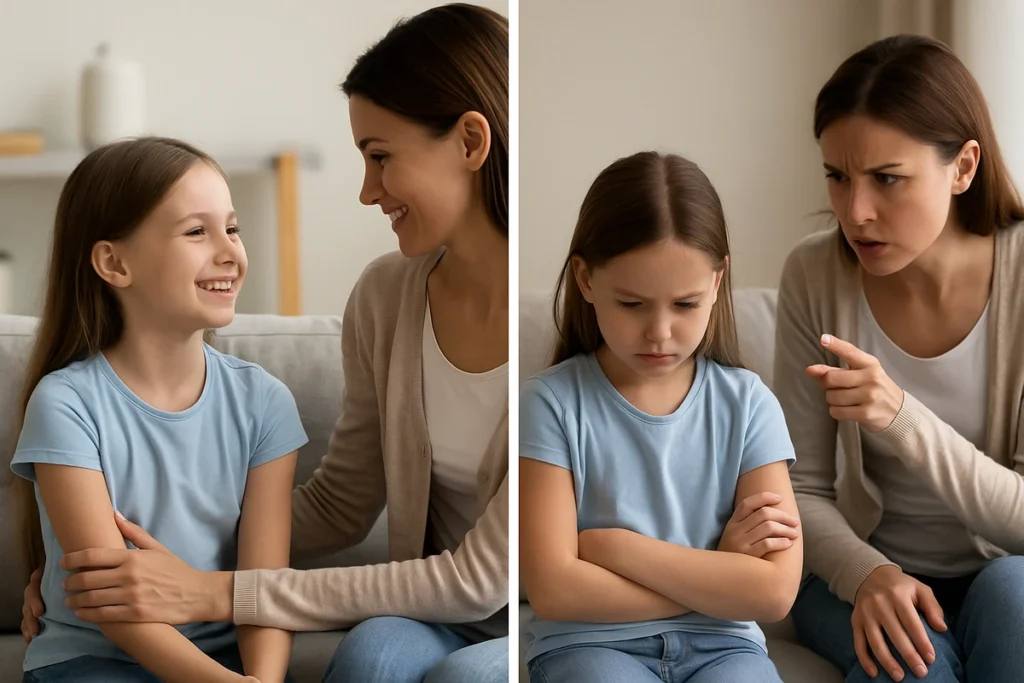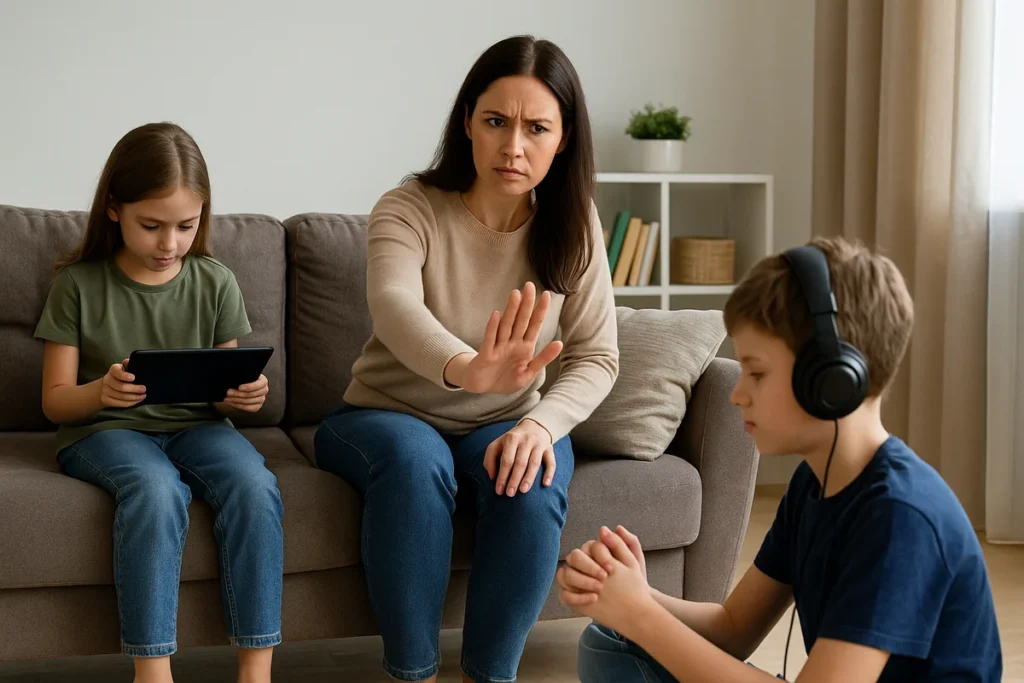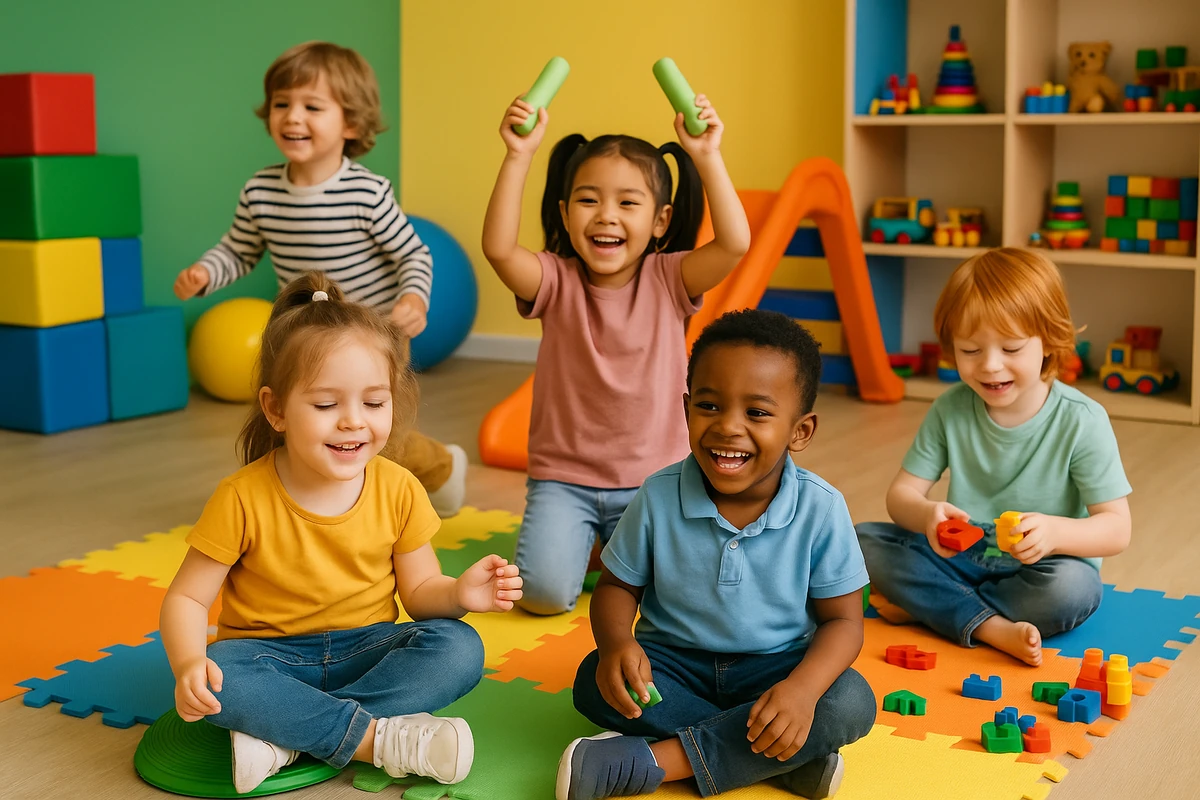Daily routines that boost kids’ mental wellness are simple, consistent habits that help children manage their emotions, stay focused, and feel good about themselves. Common examples of mental health-boosting activities include morning cuddles, regular mealtimes, outdoor play, and calm bedtime stories.
As a parent, you probably worry about your child’s happiness and emotional health. You want to help them cope with feelings, build confidence, and develop into strong little humans. But where do you start? What works without making your home a military camp?
In this article, we’ll answer these questions through practical ways to create daily habits that support your child’s mental wellbeing. You’ll get to learn:
- How to recognise when your child needs professional mental health support
- Creating emotionally safe environments for children
- Building supportive community connections
- Healthy technology management approaches
Come along and discover how small daily changes contribute to your child’s emotional health and happiness.
The Importance of a Good Mental Health Daily Routine for Kids
When your child has a structured daily routine, they feel more secure and better equipped to handle life’s ups and downs. Predictable patterns help young minds understand what comes next, reduce anxiety and build emotional stability. A solid routine also gives children the tools they need to develop healthy coping skills that will serve them throughout their lives.
Here’s how a good daily routine supports your child’s wellbeing:
How Routines Build a Foundation for Good Mental Health
A daily routine helps your child’s mental health by creating structure and predictability in their world. When young children know what to expect throughout the day, they feel safer and more secure because their brains don’t have to work overtime wondering what happens next.

It’s like having a trailer of coming attractions but for daily life instead of the cinema. This certainty helps little minds stay calm rather than worrying about unknown changes. What’s more, when children follow the same patterns each day, their bedtime routine becomes smoother and sleep comes more naturally.
You can make this even easier by creating a daily routine chart with pictures or simple words. This visual guide helps your little ones see what’s coming up next. That means fewer of those “But when do we… questions popping up throughout the day.
Signs Your Child May Be Struggling with Their Mental Health
If you notice changes in your child’s behaviour that last longer than a few weeks, it might be time to pay closer attention. When their usual routine feels impossible to follow, or your child’s mental state seems different from normal, these may be warning signs that need your attention.
Sometimes the changes are subtle at first, which makes them easy to miss. That’s why it’s important to trust your parental instincts when something feels off.
Watch for these shifts in your child’s behaviour to detect those signs:
- Sudden mood swings
- Sleep troubles
- Appetite changes
- Social withdrawal
Now, every child goes through rough patches as they grow and learn. This is completely normal. However, if these patterns stick around for weeks or get worse over time, don’t hesitate to seek professional support.
When to Seek Professional Help
You should seek professional help when your child’s mental health problems get in the way of daily life for several weeks. You may need mental health support if your family is struggling to manage emotions together or if your usual strategies stop working entirely.
According to the Australian Institute of Health and Welfare, approximately 1 in 7 children aged 4-11 (almost 14%) experienced a mental disorder. This data shows how common these challenges are for Australian families. So don’t feel alone if you’re facing these struggles.
The good news is that many kids’ mental health tips come from professionals who understand child development and family dynamics. They can offer practical strategies that work for your specific situation. No matter how overwhelming things feel right now, there are people trained to help families like yours.
What’s encouraging is that early support often prevents more serious issues later. Once you have the right professional guidance, you can then focus on building emotional skills and positive behaviour patterns at home.
Developing Emotional Intelligence and Positive Behaviour
How can you help your child understand their feelings and react in healthy ways? Well, you can teach them to recognise emotions and respond thoughtfully instead of just reacting. This skill helps children feel more confident and makes family life much smoother.
When children understand their emotions, they’re better equipped to handle challenges and build stronger relationships.
Here’s how to develop these important skills in your child:
Building an Emotionally Safe Environment
You can help children feel safe by just listening and helping them learn to manage their emotions. When your child feels heard, they’re more likely to open up about what’s bothering them. For example, if your child comes home upset about a playground argument, sitting down and really listening helps them process those feelings instead of bottling them up.
What’s more, this approach works especially well when you encourage your child to name their emotions. Gentle phrases like “I can see you’re really frustrated” help them connect feelings with words. You’ll be surprised how quickly children start using these words on their own once they hear you model them regularly.
Helpful tip: Try the “feelings check-in” during dinner, where everyone shares one emotion they felt today and why. When all of your family members open up about their feelings, your child also sees this activity as part of normal family life.

Strategies for Positive Child Development
Now, sometimes the daily moments become the easiest opportunities for child development. You’ll find that ordinary activities like brushing teeth can become chances to encourage your child’s efforts and build their confidence. The only effort you have to put in is to notice when your child tries hard, even if the result isn’t perfect.
Here are two practical strategies that work well for busy families:
- Celebrate small wins: Ever notice how your child’s face lights up when you praise their effort? It’s because children crave recognition for trying, not just for getting things right. So watch for moments when your child remembers to put their plate in the dishwasher or helps their sibling. These moments might seem tiny, but praising effort builds healthy habits over time.
- Create choice within structure: Let your child pick between two good options, like “Would you like to read stories or do puzzles before bed?” In this way, they feel more cooperative because they have some say in their day while still following helpful routines.
Of course, emotional intelligence works best when children feel connected to others and learn to care for themselves. This brings us to how social relationships and self-care habits support your child’s overall mental wellness.
The Power of Social Bonds and Self-Care
When children have strong social connections and practice self-care habits, you’ll see the positive impacts they have on confidence, mood, and overall happiness. These two elements work together like a support system that helps children bounce back from tough days.
Also, strong relationships give children a sense of belonging, while self-care teaches them how to look after their own needs.
Let’s explore how you can strengthen both social connections and self-care habits in your child’s life:
The Importance of Community Connections
Imagine your child walking into school each morning knowing they have friends who care about them and a teacher who understands their personality. That sense of belonging reduces anxiety and boosts their confidence throughout the day. Community connections give children multiple sources of support beyond family.
What’s more, these relationships directly influence children’s behaviour in positive ways. When children feel accepted by classmates and have a good relationship with their teacher, they’re more likely to participate in activities and speak up when they need help.
Beyond the classroom, strong community connections through sports teams, hobby groups, or neighbourhood friends teach children that they’re valued by people outside their immediate family. They can meet people who share their interests and learn that friendships come in many different forms. We know you want your child to feel accepted and confident in social situations, and these connections help make that happen naturally.
Modelling Healthy Habits for Young People
As a parent, you’re your child’s first teacher when it comes to taking care of themselves. Young people watch how you handle stress, manage your sleep schedule, and treat your own body. Your family’s daily habits become the blueprint for how your child will approach their own wellbeing.
Though it might feel like extra pressure, remember that you don’t need to be perfect all the time. Children actually learn more from watching you try to make good choices than from seeing you get everything right. After all, if parents were perfect, children would never learn how to handle mistakes or bounce back from bad days.
We recommend starting with small changes that everyone can follow together. Show your children that healthy habits are the best way to feel better and have more energy for fun activities.
While we’re talking about healthy habits, we can’t ignore how technology fits into your child’s daily routine and mental wellbeing. Like anything else, screen time has become part of most families’ lives, so managing it well is just as important as the other healthy habits you’re building together.
Managing the Digital World for a Child’s Wellbeing
Struggling to balance screen time with your child’s routine while keeping your family connected and happy? In this section, we’ll share practical ways to help your child build a healthy relationship with technology that supports rather than harms their mental wellbeing.
First, let’s talk about setting some basic ground rules that many families have found helpful. These aren’t meant to be strict rules that cause arguments, but rather guidelines that help everyone feel good about technology use.
Here are some simple boundaries that many families find helpful:
- No screens during family meals
- All devices charge outside bedrooms overnight
- One screen-free hour before bedtime
- Always ask permission for downloading new apps
- Take tech breaks every hour of use

Now, you might wonder how these rules play out in practice. One of our clients found that her 8-year-old was getting cranky every evening after long iPad sessions. She started using a timer for 30-minute chunks with 10-minute breaks in between. Within a week, the evening meltdowns stopped completely, and her son actually started asking for the timer himself.
When you approach technology thoughtfully, it can become part of your child’s routine in a way that supports their wellbeing. What counts most is finding the right balance that works for your particular family situation and your child’s individual needs.
Your Child’s Mental Wellness Starts Today
Every parent goes through moments of worry about their child’s emotional health and happiness. But with the right daily routines and consistent habits, you can support your child’s mental wellbeing and help them develop strong emotional skills.
We’ve covered how to build emotionally safe environments, develop positive behaviour patterns, and create meaningful connections within your community. You’ve also learned practical strategies for managing technology use and modelling healthy habits that your child will carry with them throughout life.
At Litill, we understand that raising confident, emotionally healthy children takes the right tools and guidance. That’s why we’ve created a comprehensive resource library filled with practical tips on nutrition, fitness, education, and mental health, all designed specifically for children and families like yours.
Ready to give your child the best foundation for lifelong mental wellness? Contact us today and discover more evidence-based strategies that will help your child’s development.

